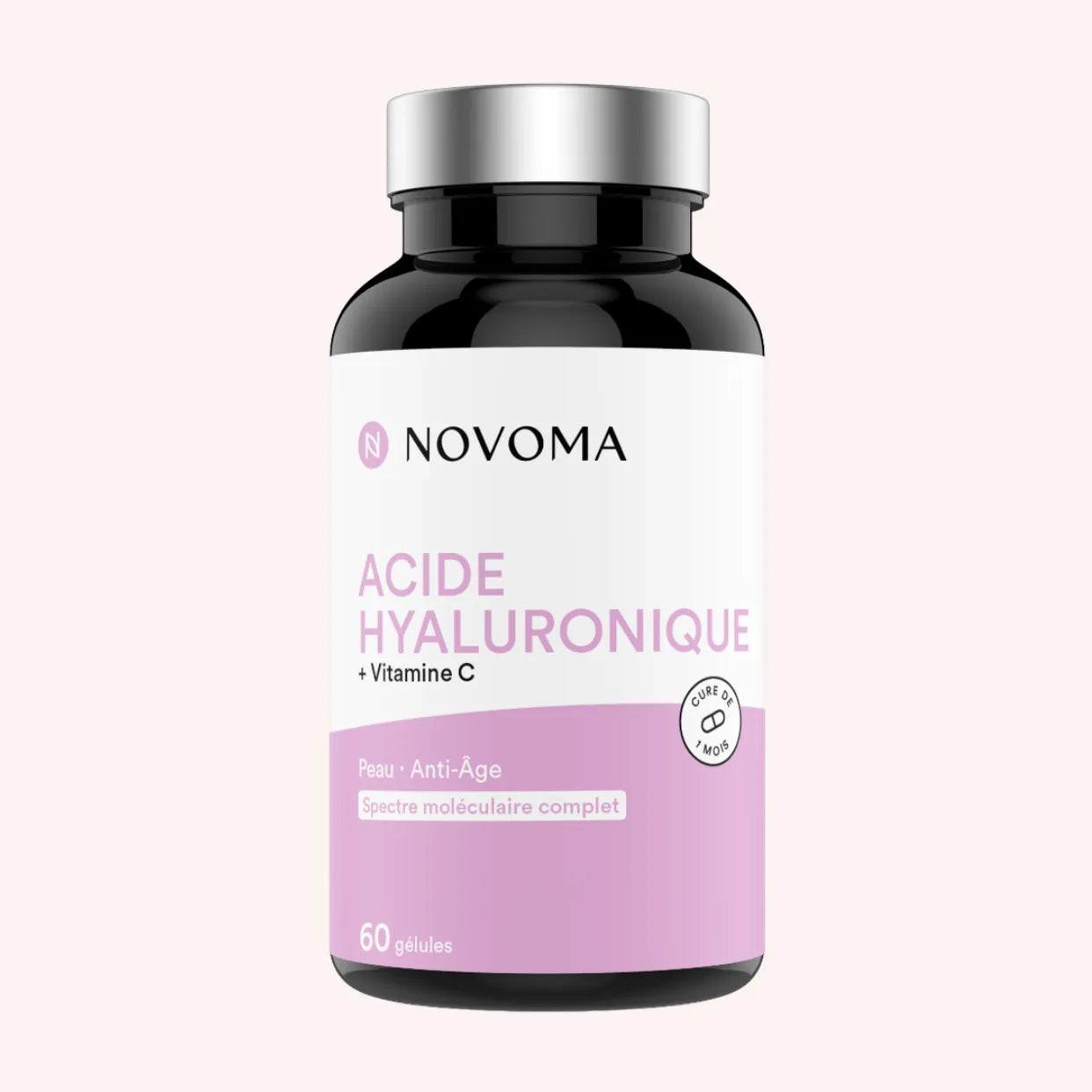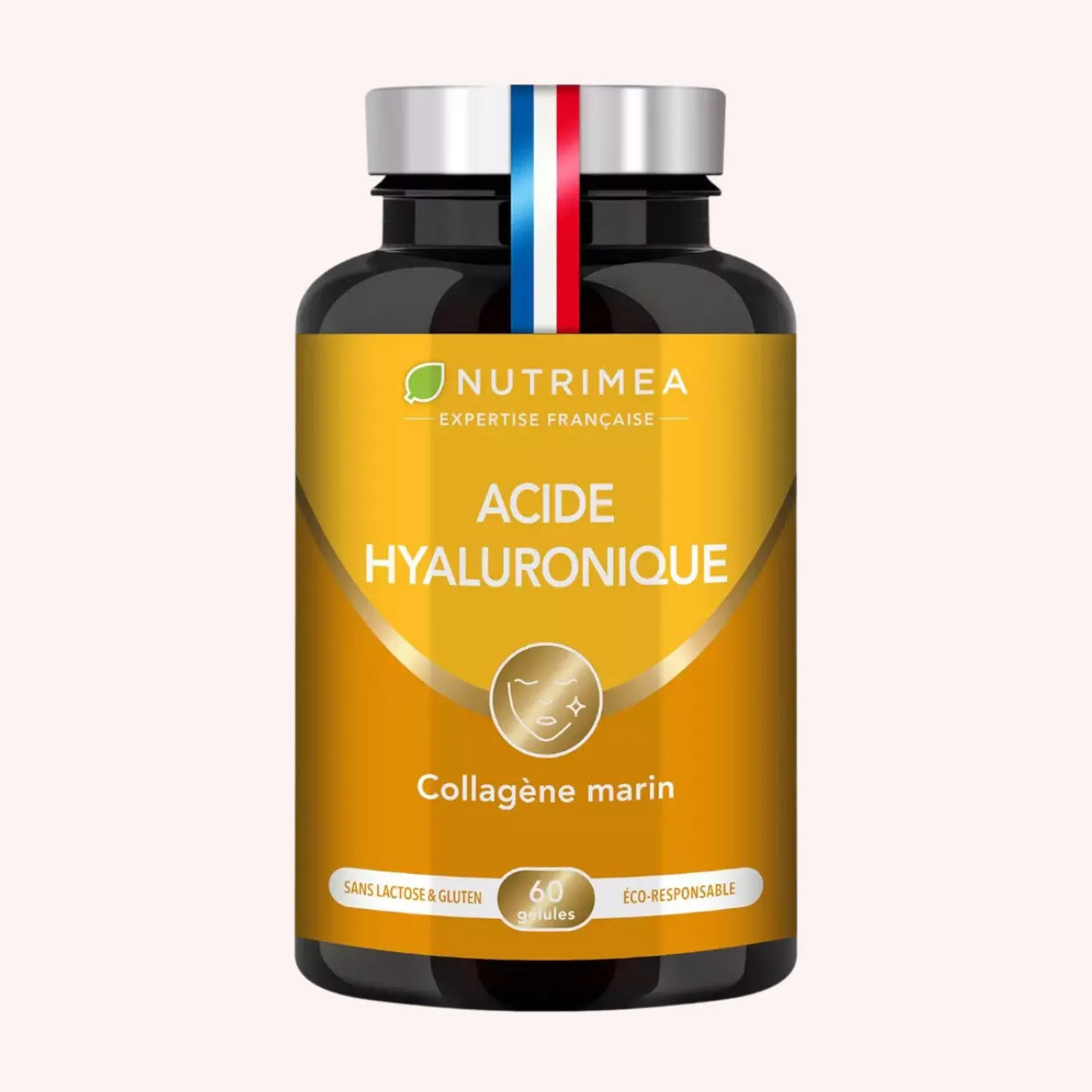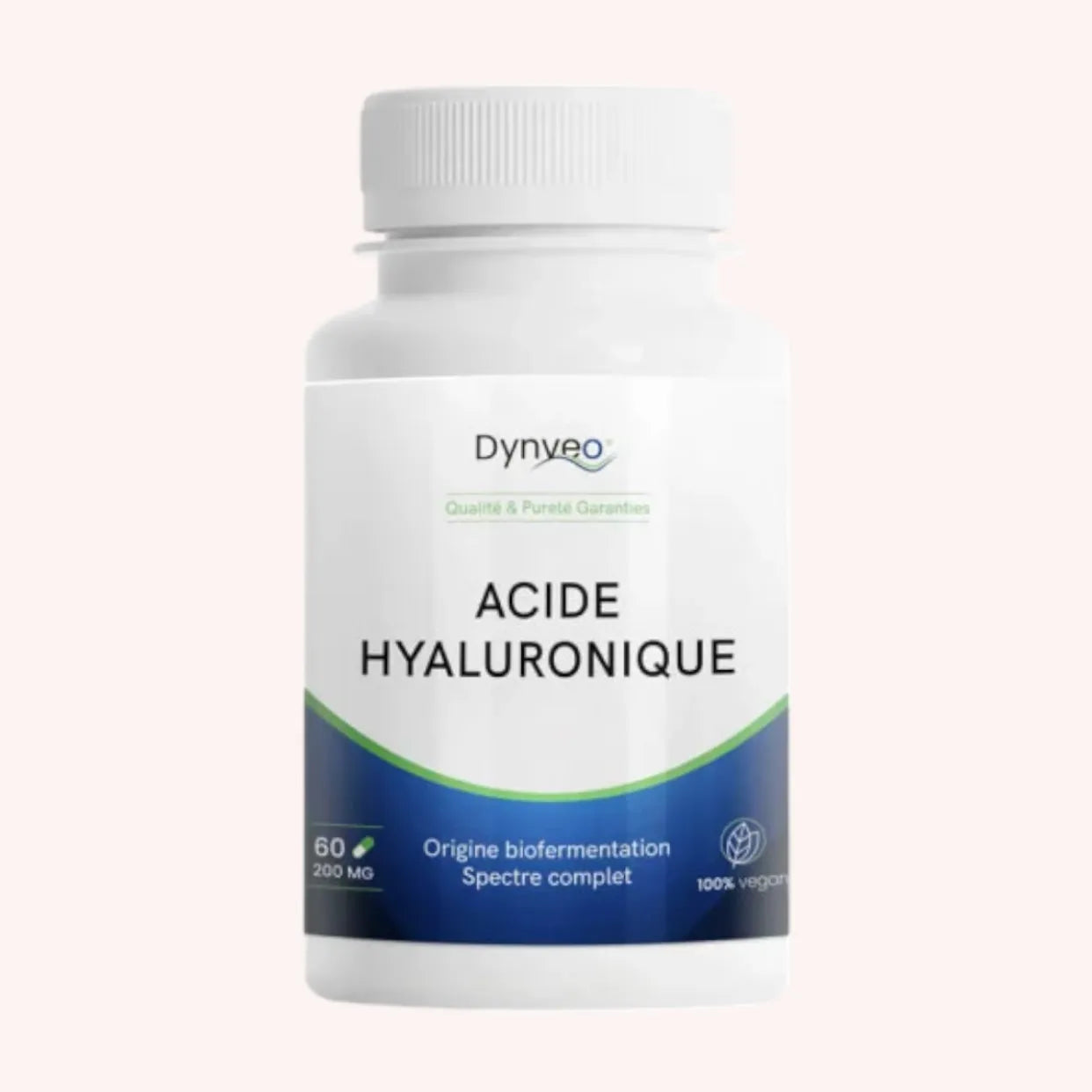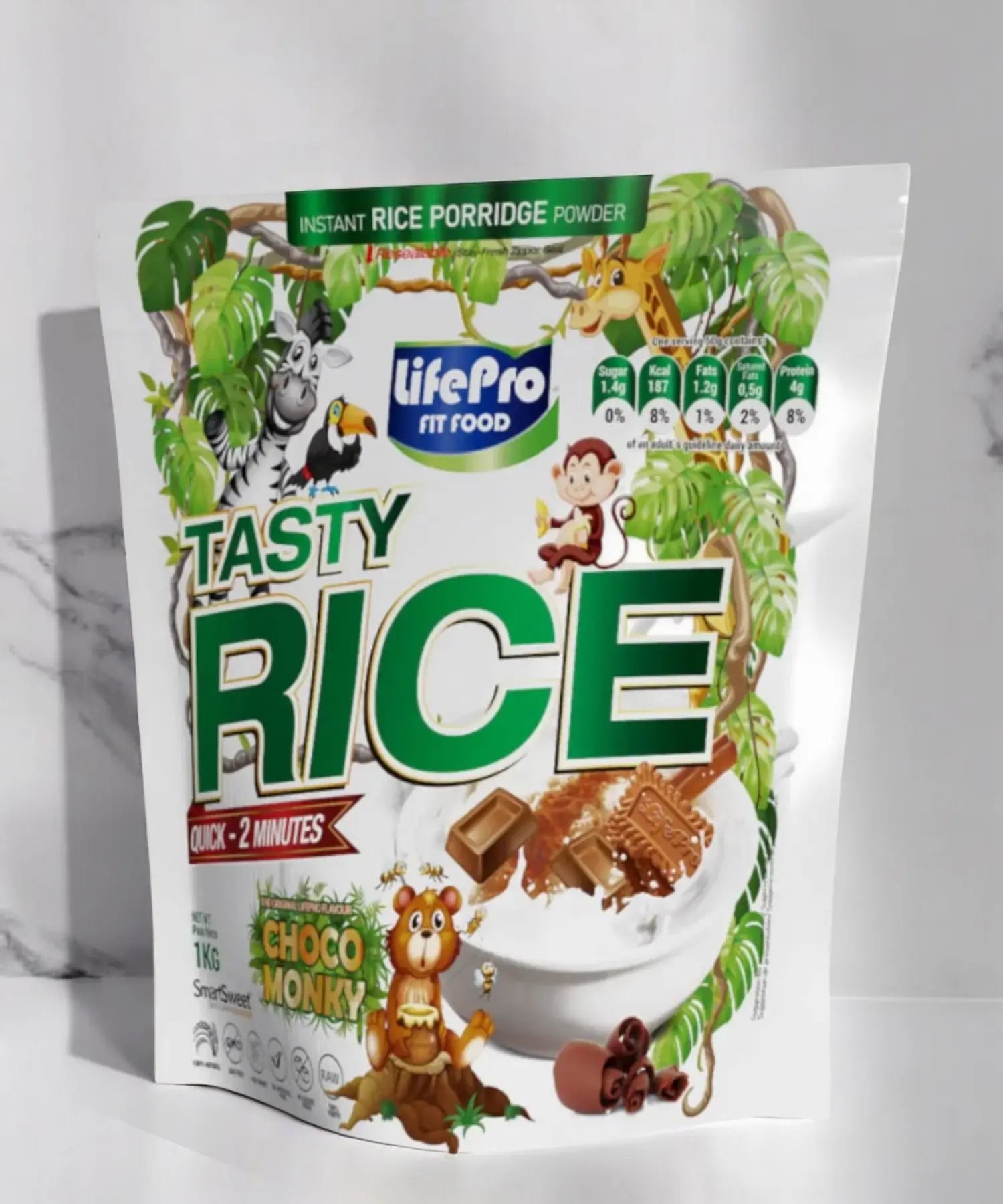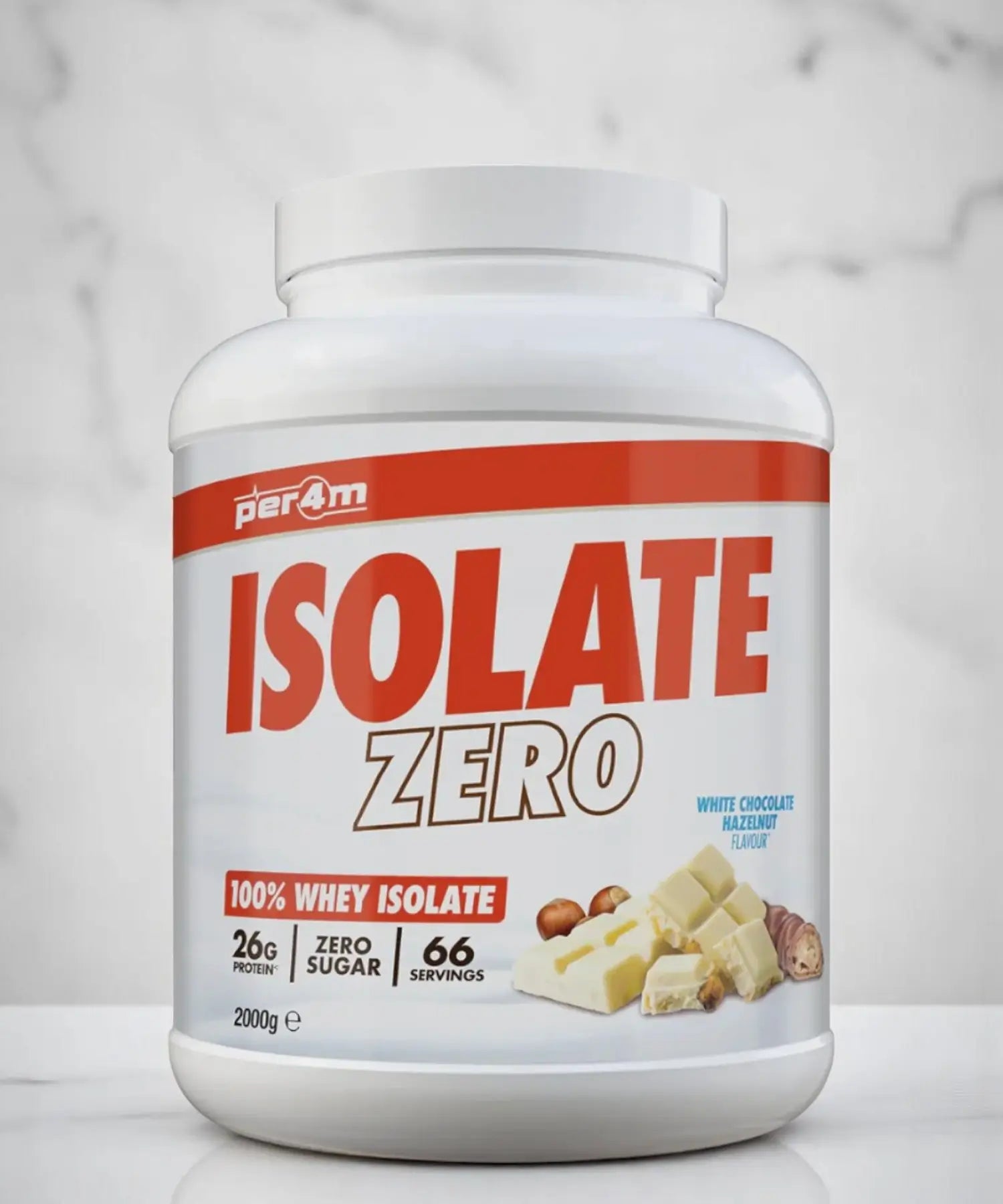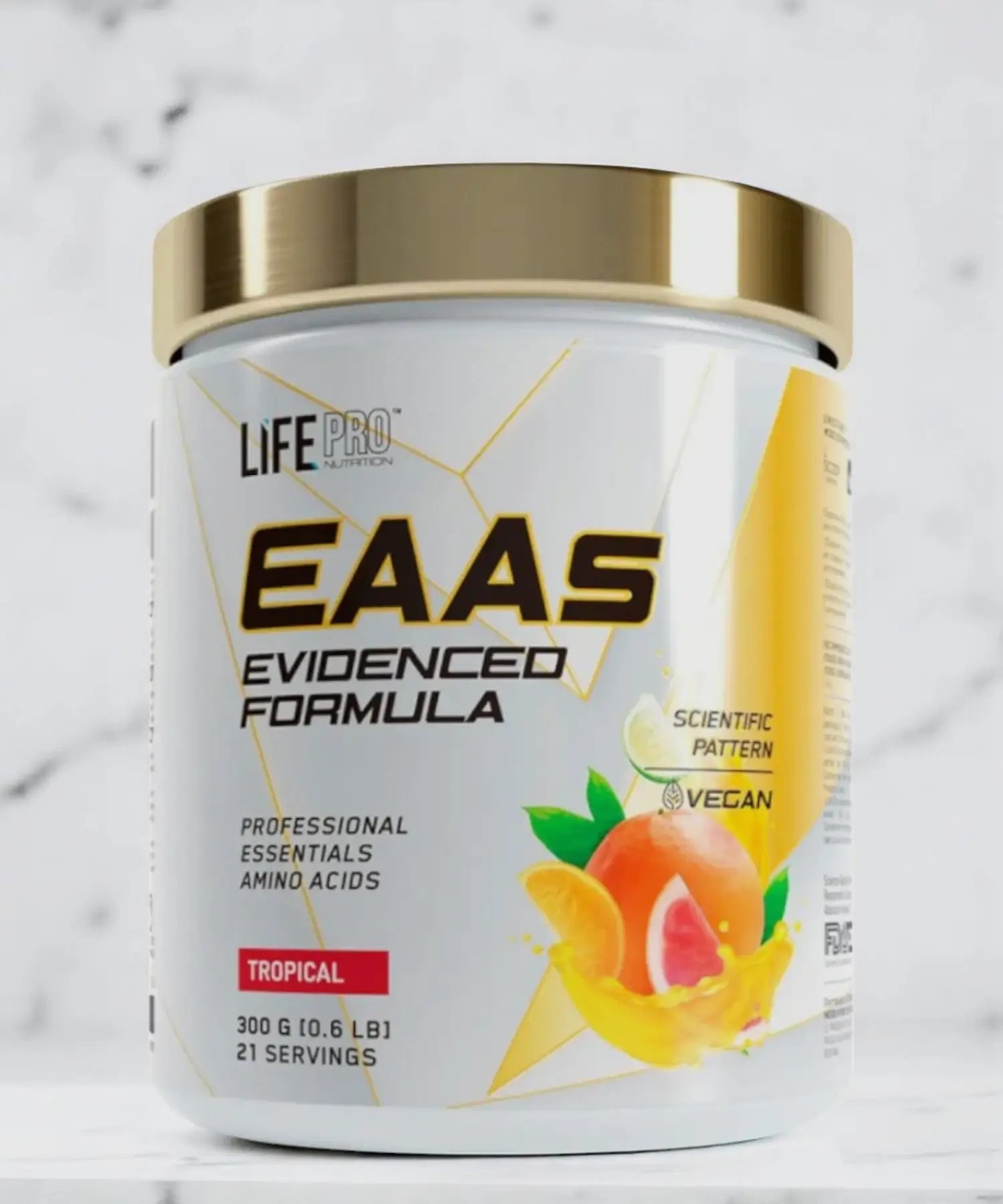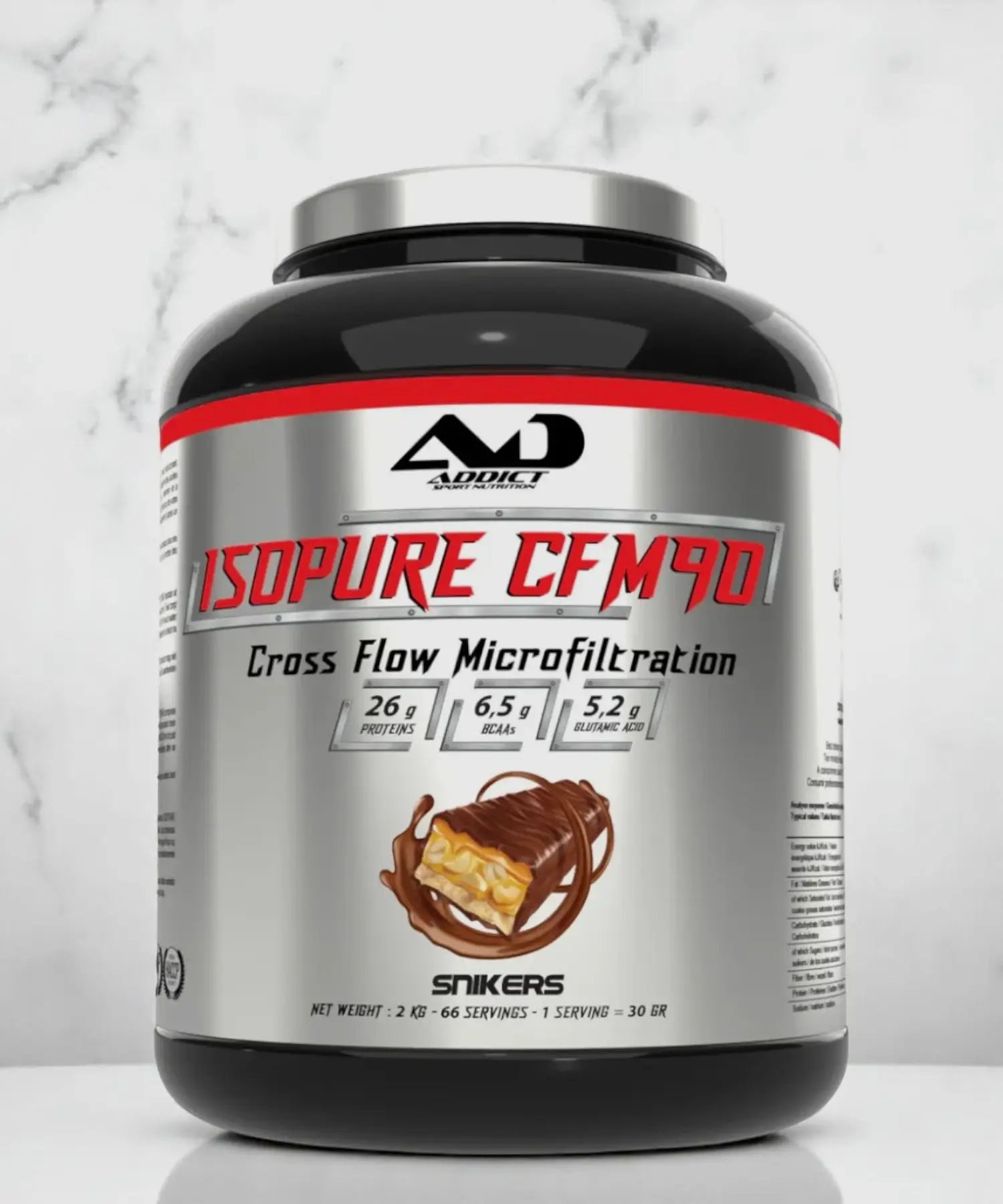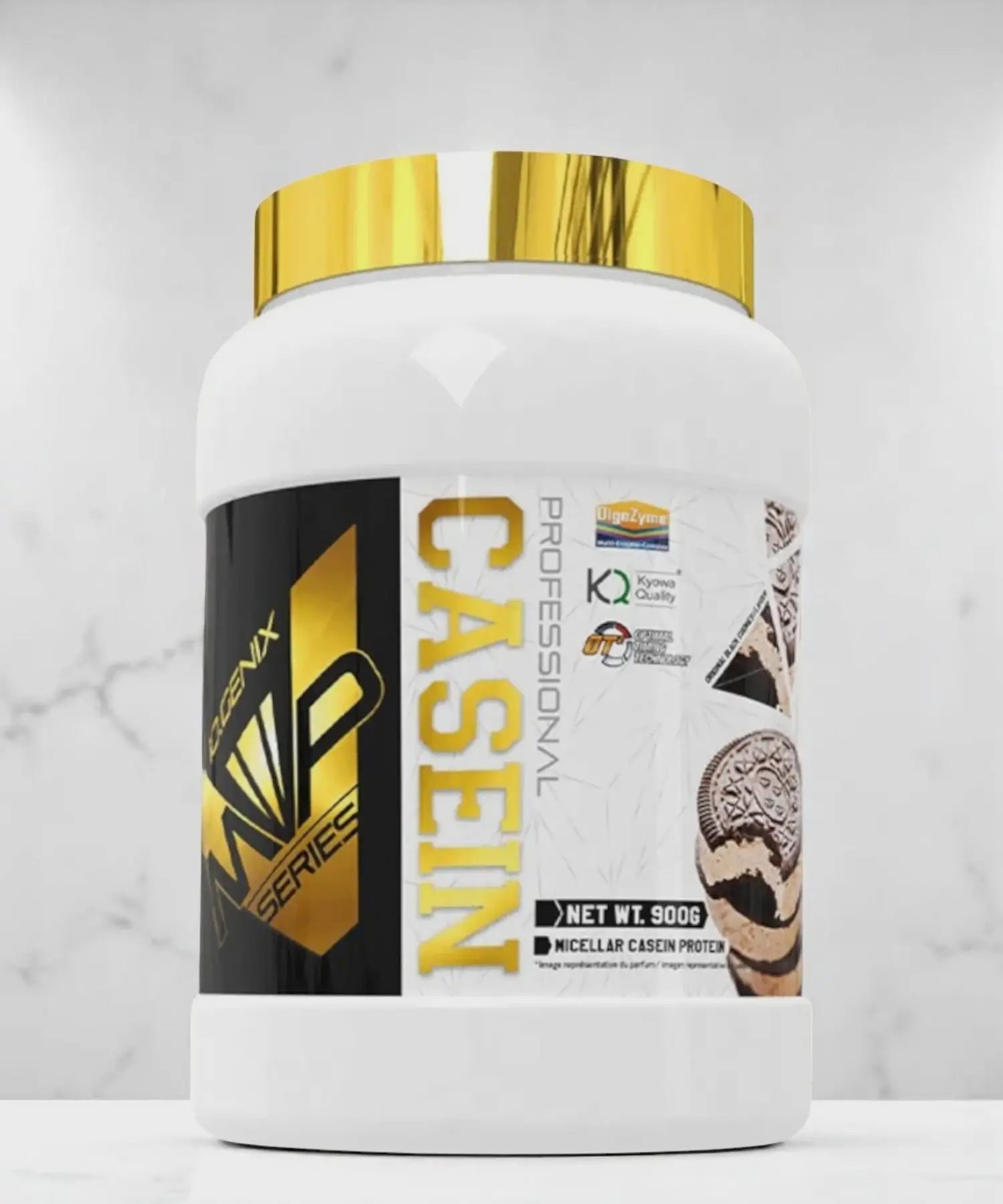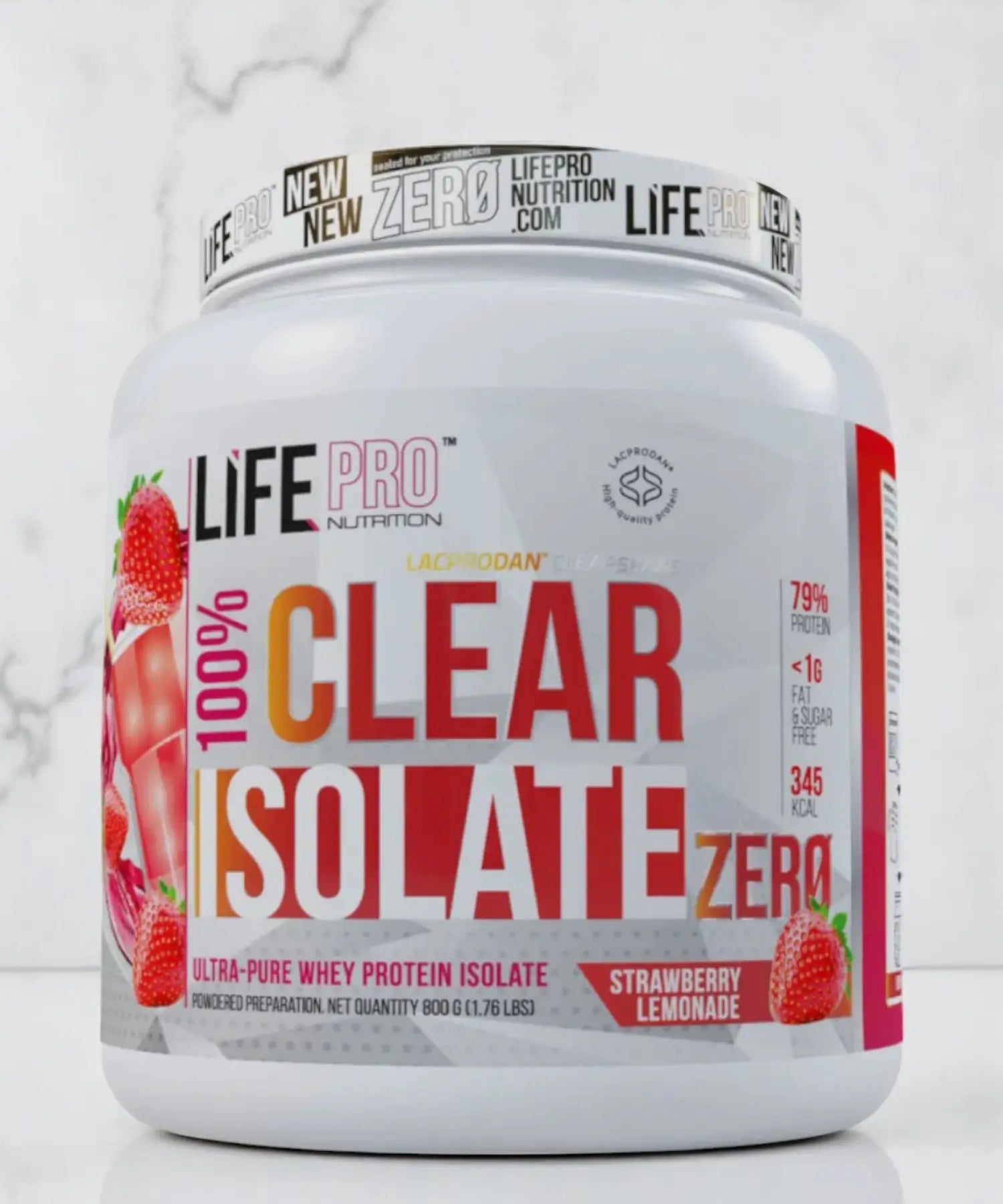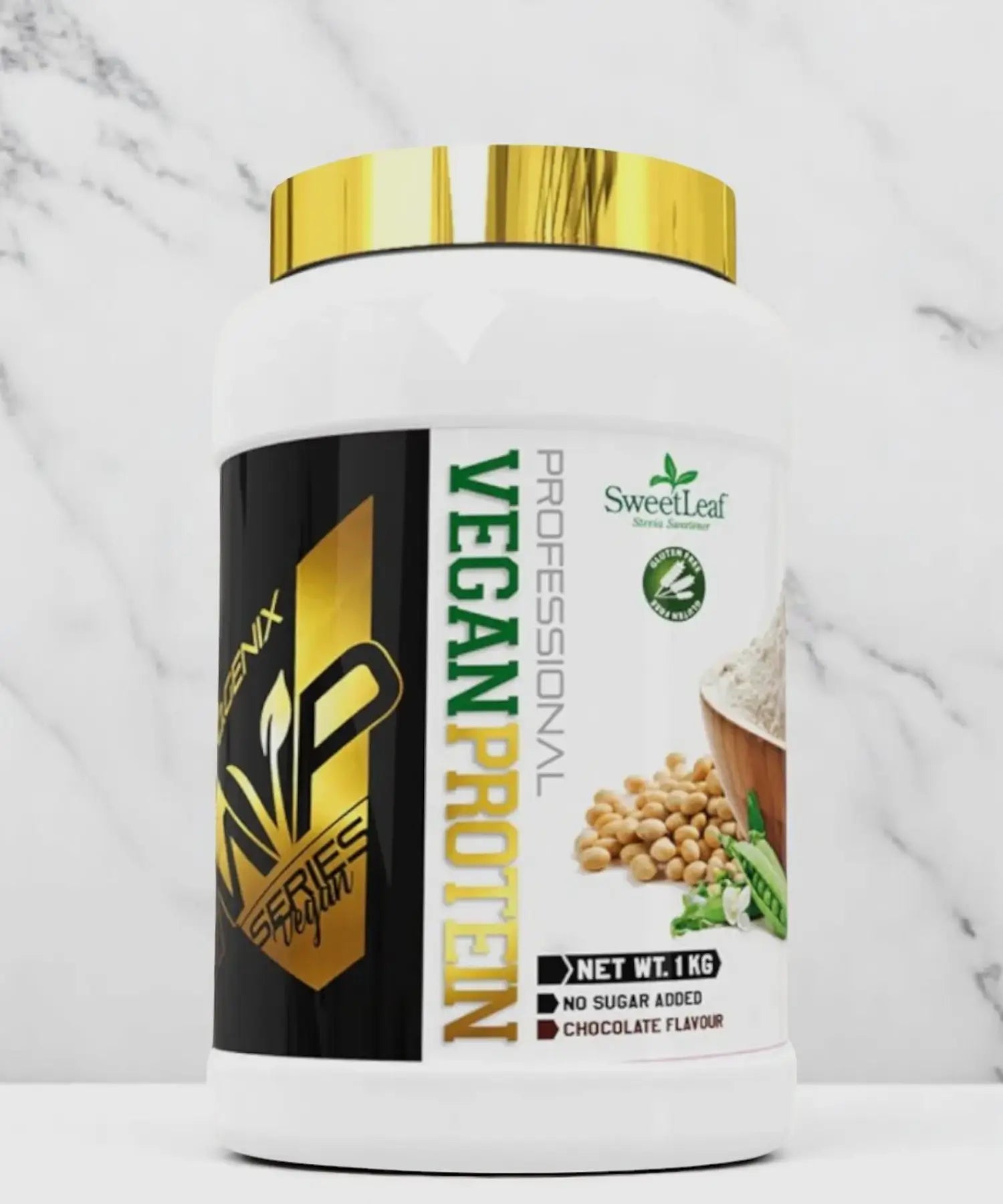3 products
Hyaluronic acid has become a key ingredient in many cosmetic products and dietary supplements. This natural compound plays an essential role in the human body, particularly in helping maintain good skin health. If you're considering incorporating hyaluronic acid into your routine, this article will guide you through its benefits, recommended dosages, and practical tips for choosing the right dietary supplement.
What is hyaluronic acid and where is it found in the body?
Hyaluronic acid is a molecule naturally present in the body, particularly in the skin, eyes, joints, and connective tissues. It is a polysaccharide (complex sugar) that has the ability to retain an impressive amount of water. It is notably present in:
- Skin: It helps maintain youthful skin by promoting hydration, thus contributing to skin elasticity and suppleness. Hyaluronic acid is a key component of skin structure, particularly in the dermis.
- Joints: It plays a role in the formation of synovial fluid, a fluid that helps lubricate joints and reduces friction.
Thus, hyaluronic acid is essential for many physiological processes, and for this reason it is often included in food supplements.
The benefits of hyaluronic acid in food supplements
Skin health
Hyaluronic acid plays a vital role in skin health . It is particularly known for its ability to maintain healthy skin . Youthful skin is well-hydrated skin with a smooth and elastic appearance.
Rejuvenated skin
Hyaluronic acid helps keep skin youthful . With age, the skin's natural production of hyaluronic acid decreases, which can lead to a loss of moisture and elasticity. Hyaluronic acid supplements help keep this substance in the skin and maintain its youthful appearance . A recent study by Bukhari, SN et al. showed that hyaluronic acid can improve skin elasticity and firmness (1).
Hyaluronic acid and combination formulations
Synergy with vitamin C to maximize effects
One way to enhance the benefits of hyaluronic acid is to combine it with vitamin C. Vitamin C is known for its contribution to the formation of collagen, a protein that plays a role in the normal function of bones, cartilage, and skin.
Vitamin C also protects the skin from free radicals, unstable molecules that can accelerate skin aging. This vitamin, combined with hyaluronic acid, can be an asset in maintaining youthful skin.
Hyaluronic Acid and Collagen: A Winning Combination for the Skin
Collagen is another important structural protein for the epidermis. Like hyaluronic acid, collagen production declines with age, during which time the skin can become less firm and elastic.
Combining it with hyaluronic acid in a dietary supplement maximizes anti-aging effects. Together, these two ingredients offer a complete solution for maintaining skin health and preserving its youthful appearance.
How to choose the right hyaluronic acid food supplement?
The market for hyaluronic acid supplements is vast. Here are some tips to help you make an informed choice and find the product best suited to your needs.
Check the quality of hyaluronic acid
To ensure beneficial effects, it is essential to choose products containing naturally occurring hyaluronic acid, often produced by fermenting bacterial strains. Products containing low-molecular-weight hyaluronic acids will be better absorbed by the body, thus providing better results.
Pay attention to the dosage
The recommended dosage of hyaluronic acid varies depending on individual needs. For general use, a dosage between 100 and 200 mg per day is often recommended.
It is also essential to consult a healthcare professional before starting any dietary supplement, especially if you have pre-existing health conditions or are taking medication.
Conclusion :
Hyaluronic acid is a valuable ally for maintaining healthy skin and preserving its youthful appearance . Combined with nutrients like vitamin C or collagen , hyaluronic acid maximizes its benefits. Vitamin C supports collagen production, which is particularly beneficial for athletes who regularly put stress on their joints and connective tissues.
Remember to choose high-quality supplements and consult a healthcare professional before adding any supplement to your routine.
Sources:
- Bukhari, S.N., Roswandi, N., Waqas, M., Habib, H., Hussain, F., Khan, S., Sohail, M., Ramli, N., Thu, H., Hussain, Z. (2018). Hyaluronic acid, a promising skin rejuvenating biomedicine: A review of recent updates and pre-clinical and clinical investigations on cosmetic and nutricosmetic effects . ScienceDirect. DOI: https://www.sciencedirect.com/science/article/abs/pii/S014181301833770X?via%3Dihub
- Laconisi, GN, Lunetti, P., Gallo, N., Cappello, AR, Fiermonte, G., Dolce, V., & Capobianco, L. (2023). Hyaluronic Acid: A Powerful Biomolecule with Wide-Ranging Applications—A Comprehensive Review. International Journal of Molecular Sciences, 24(12), 10296. DOI: https://www.mdpi.com/1422-0067/24/12/10296





